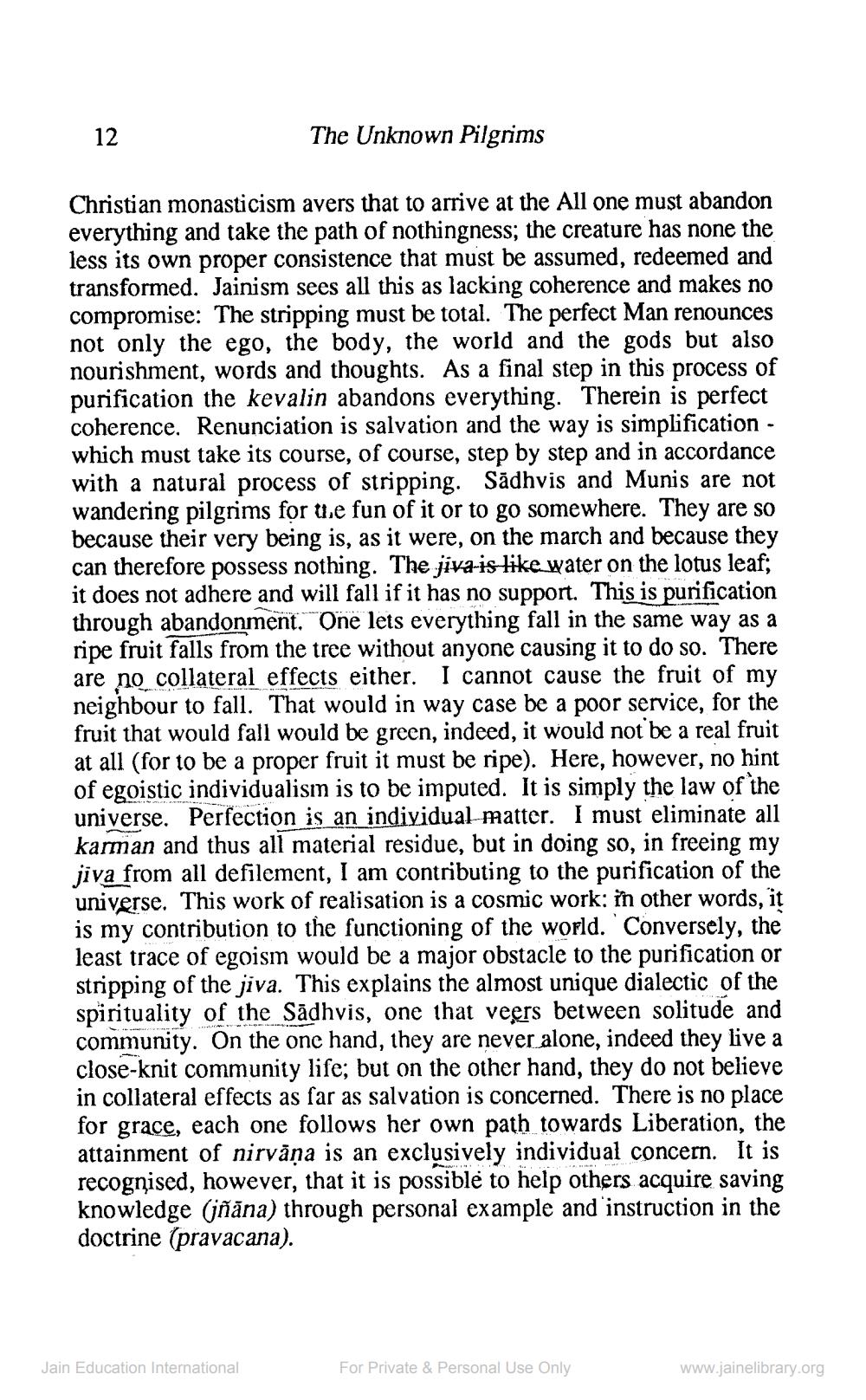________________
121
The Unknown Pilgrims
Christian monasticism avers that to arrive at the All one must abandon everything and take the path of nothingness; the creature has none the less its own proper consistence that must be assumed, redeemed and transformed. Jainism sees all this as lacking coherence and makes no compromise: The stripping must be total. The perfect Man renounces not only the ego, the body, the world and the gods but also nourishment, words and thoughts. As a final step in this process of purification the kevalin abandons everything. Therein is perfect coherence. Renunciation is salvation and the way is simplification - which must take its course, of course, step by step and in accordance with a natural process of stripping. Sadhvis and Munis are not wandering pilgrims for the fun of it or to go somewhere. They are so because their very being is, as it were, on the march and because they can therefore possess nothing. The jiva is like water on the lotus leaf; it does not adhere and will fall if it has no support. This is purification through abandonment. One lets everything fall in the same way as a ripe fruit falls from the tree without anyone causing it to do so. There are no collateral effects either. I cannot cause the fruit of my neighbour to fall. That would in way case be a poor service, for the fruit that would fall would be green, indeed, it would not be a real fruit at all (for to be a proper fruit it must be ripe). Here, however, no hint of egoistic individualism is to be imputed. It is simply the law of the universe. Perfection is an individual matter. I must eliminate all karman and thus all material residue, but in doing so, in freeing my jiva from all defilement, I am contributing to the purification of the universe. This work of realisation is a cosmic work: in other words, it is my contribution to the functioning of the world. Conversely, the least trace of egoism would be a major obstacle to the purification or stripping of the jiva. This explains the almost unique dialectic of the spirituality of the Sadhvis, one that veers between solitude and community. On the one hand, they are never alone, indeed they live a close-knit community life; but on the other hand, they do not believe in collateral effects as far as salvation is concerned. There is no place for grace, each one follows her own path towards Liberation, the attainment of nirvāņa is an exclusively individual concern. It is recognised, however, that it is possible to help others acquire saving knowledge (jñāna) through personal example and instruction in the doctrine (pravacana).
Jain Education International
For Private & Personal Use Only
www.jainelibrary.org




